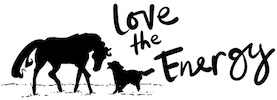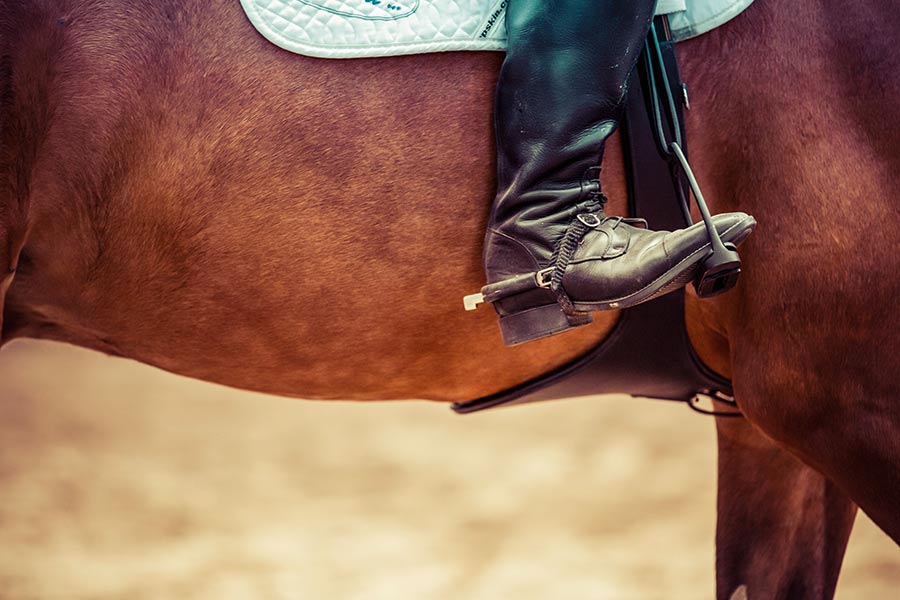When you are new to the horse world there is only one thing you can be sure of: you don’t know how much you don’t know. Therefore, it is a common and wise practice to hire a trainer or riding instructor to help with your equestrian journey. What is the difference between the two? A trainer will usually train horses and also provide riding instruction to their clients. An instructor, by contrast, can often be found at a riding school or private barn. They usually have a couple lesson horses and their own mounts as well, but they don’t ride and train your horse.
As is the case with most things in the horse world, finding a trainer/instructor can be tricky. You can search online, call a local barn, find a riding school, ask around. There are many ways to find someone to work with. But then, once you find someone, how do you know they are the real deal? Below is a quick list of things I’ve learned to look for. It’s not a definitive list (and indeed I would welcome more tips in the comments!) but these are the big ones that, if I had known them from the get go, would have saved us a lot of headache.
1. They have other clients.
One excellent sign that your trainer is what they claim to be is that they have an established “stable” of existing clients. This is not to say that you can’t work with someone who is just getting started, but if you yourself are new to the horse world it’s better to find a trainer with some real experience.
I used to think that a trainer was legit if people at local barns/stables had heard of them and didn’t have anything negative to say. But I later discovered that this is NOT a reliable way to check someone out. Why? Because the horse world is small, especially in your local community, and people will not say anything negative for fear of getting a bad rap themselves or missing out on future opportunities. In fact, I have since asked trainers I know whether they would warn someone away from a dubious situation, especially if someone was a complete newbie who couldn’t suss things out on their own. Without exception, they all said that no, they wouldn’t say anything because it wasn’t their business and it’s just “not done.”
So, I have since determined that the best way to get a community “stamp of approval” is to make sure the trainer has other clients. Clients that have been with them for some time, who have well behaved horses, and good riding skills of their own.
2. If they are on the younger side, they are working with a mentor who has an established client base & an excellent reputation.
If your trainer is young they can make up for their lack of real-world experience by working with a mentor. One trainer we had was the working student of a well-respected and nationally recognized trainer. They met weekly for coffee, and if there was ever a question about something she could turn to her mentor for advice. Sometimes her mentor would even work with her while our horse was being trained, so we got the benefit of two trainers in one.
3. Their own horse is well trained.
Many trainers have a young horse that they are bringing along for eventual sale, so it would not be alarming if that horse was not yet superbly trained.
However, the trainer’s main horse should be exceptionally well trained and a testament to their training/riding abilities. If their horse is bucking them off, bolting, tearing around the arena, and/or is generally unsafe to be around, that will tell you all you need to know about the trainer’s ability to help you with your own mount.
4. If you are thinking of eventually showing, they have a show record that demonstrates their expertise in your chosen type of riding.
This one may or may not apply to you. We ourselves are not interested in showing, but it was nice that one of the trainers we worked with had medaled in English Dressage. If we decided to start showing dressage she would be an excellent person to work with since she is clearly a skilled rider and has trained her own mount to score well in dressage competitions. However, if we decided we wanted to pursue Hunter-Jumper shows or Western Dressage, we would want to find a trainer that had proven experience in those disciplines.
In addition to their own success, a trainer’s existing students should be doing well at local shows. When students enter shows and score well, or at least ride well with a well behaved mount, they demonstrate their trainer’s skill with both horses and teaching.
Even If All the “Boxes” Are Checked, Keep Your Eyes Open
Even if all of these positive signals are in place, still keep your eyes open. For example, if your trainer checks all the boxes above and yet recommends that you buy a horse that is clearly a bad choice – take a step back and consider their motives. If you are advised to overlook major issues such as lameness, cataracts, biting and cribbing, ask yourself why they are recommending a horse that comes with significant drawbacks & risks. Odds are it’s because you need a horse in order for them to bill you for time spent training the horse and giving you riding lessons. It’s in their best interest for you to have any horse instead of no horse. So while your priority is finding a sound, sane and safe horse to enjoy for many years, their goal may be to find a horse you could ride for now. I know this sounds cynical, but it happens all the time. In the horse world, as with anything, it’s important to educate yourself and make sure you are advocating for your best interests. Don’t blindly trust the opinion of your trainer – or anyone – no matter how amazing they might be.

